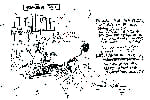Editorial
Concerns Of Medical Doctors: Task Before FG
The thick cloud of uncertainty and palpable fear that loomed large in our clime’s horrison last week, on account of the planned indefinite nationwide strike by Medical doctors, in all Public Health institutions, nationwide, has eventually given way for a temporary respite and has provided another opportunity for the Nigerian Federal government to do what is right.
Why so? The Nigeria Medical Association, (NMA) umbrella body of Doctors had, in agitation for improved remuneration for practitioners, threatened to shun all health institutions last month, but following pleas by concerned Nigerians shifted their action by 28 days, which expired this week.
However, before the strike, agents of the Federal government, in hurried dialogue with the NMA leadership, appealed for two more months, with the promise that on or before September 30, this year, the special salary scale for medical practitioners will come into force.
That assurance has come after about 11 years of failed negotiations with government which forced the NMA to conclude that a nationwide industrial action, would no doubt be the only language the Federal government might understand, but as a last resort.
Curiously, that language appears to have forced the Federal government to promise to do, in two months, what 11 years of agitation, negotiation, dialogue and civil appeals could not guarantee. Even more painful is the fact that when certain agreements are reached between the Federal government and unions their eventual implementation are unduly delayed, thus prompting yet another round of dialogue, agitations and frustrations.
Knowing this as fact, President of the NMA, Dr Prosperous Igboebi has, while calling off the planned strike, in acceptance of the two months grace demanded of it, by government, warned that if by September 30, this year, the Federal government failed to deliver on its promise, all medical doctors would have no need for dialogue with any one.
The Tide commends the NMA for the human face it has painted of its just struggle and the rare value it has attached to human lives, particularly, in demonstration of sympathy over the fate of the many sick in several public health institutions across the country. The body of doctors, has by that singular act of yielding to appeals by well-meaning Nigerians to give the Federal government another chance to do right, shown tremendous sense of patriotism, sacrifice and indeed humaneness which deserve both commendation and emulation by all other labour unions and stakeholders alike.
Intrinsically, that goodwill now places on government enormous burden and challenge to shed the toga of distrust often associated with it, by delivering on its promise to implement the agreements reached with the doctors, and in record time.
We say so because, judging by antecedents, not many are keen to add real value to agreements the Federal government reaches with operators of key sectors of the polity.
The other day, the Federal government set-up the Ledum Mitee Technical Committee on the Niger Delta and accepted reports of the body only to dump them in the dingy chambers, where, reports or agreements that must not be implemented are kept.
Yesterday, the same Federal government reached an agreement with the Academic Staff Union of Nigerian Universities (ASUU) but refused to sign its own column of the agreement duly reached. It was only when ASUU embarked on a nationwide strike, which has almost crippled the functioning of the Ivory Tower that government hurriedly increased their salaries by 40 per cent.
Today, it is the case of doctors clamouring for improved remuneration for a disturbing 11 years, only for the same government to turn around and ask doctors to endure the pain for two more months.
Interestingly, while agitation for improved pay for medical doctors, University lecturers, classroom teachers, civil servants and even mass media practitioners take years of protest and threat of nationwide strike to actualise, it takes days to approve the jumbo salaries, and sometimes, unrealistic allowances of political office-holders.
These are why the Federal government must use the two months period now provided it, to prove to Nigerians that its abysmally low confidence rating has eventually given way for a positive rebirth.
Perhaps, it will also be most instructive to urge the Federal government to redefine its priorities because the implementation of President Yar’Adua’s seven-point Agenda still leaves more questions than the answers it promised to offer, and the Niger Delta question is one such.
Editorial
As NDG Ends Season 2

Editorial
Beginning A New Dawn At RSNC

Editorial
Sustaining OBALGA’s Ban On Street Trading

-
Maritime5 days ago
Nigeria To Pilot Regional Fishing Vessels Register In Gulf Of Guinea —Oyetola
-

 Sports5 days ago
Sports5 days agoGombe-Gara Rejects Chelle $130,000 monthly salary
-
Maritime5 days ago
Customs Declares War Against Narcotics Baron At Idiroko Border
-

 Sports5 days ago
Sports5 days agoTEAM RIVERS SET TO WIN 4×400 ” MORROW” …Wins Triple jump Silver
-

 Sports5 days ago
Sports5 days agoNPFL Drops To 91st In Global League Rankings
-
Maritime5 days ago
NIMASA,NAF Boost Unmanned Aerial Surveillance For Maritime Security
-

 Sports5 days ago
Sports5 days agoNIGER DELTA GAMES PANACEA TO YOUTH DEV”
-

 Sports5 days ago
Sports5 days agoNPFL Impose Fines On Kwara United Over Fans Misconduct

